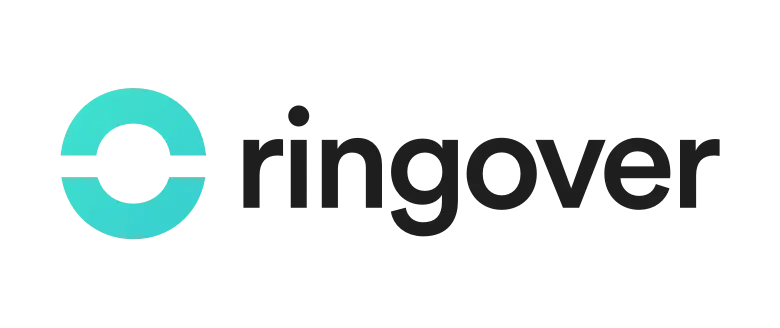We use cookies to personalize content, provide social media features and analyze traffic. You can get more information by visiting our cookie policy. You can configure cookies without accepting them by clicking hither.
These are the 15 best virtual phone systems for businesses in 2026:
- Harmonix AI
- Ringover
- Aircall
- Zadarma
- Fonvirtual
- Enreach Contact
- 3CX
- Cloudtalk
- Vonage
- RingCentral
- Mitel MiCloud Connect
- GoTo Connect
- Dialpad
- NFON Cloudya
- Wildix
In today’s world, where fast and efficient communication is crucial, top virtual phone systems have become one of the most in-demand solutions for businesses.
It’s no longer just about making calls, but about managing all interactions from anywhere, without relying on physical infrastructure.
Many companies still work with separate channels like email, phone or WhatsApp. This not only makes things harder to organize, but also makes it difficult to access key data for strategic decisions.
Virtual phone systems change the game by offering true omnichannel support, letting all communication flow through a single platform.
This saves time, enhances customer service, and reduces operational errors.
These tools help teams work faster, more easily, and with more context, thanks to features like smart routing, call recording, and real-time reports.
In this article, we’ll explore what virtual phone systems are, how they work, the benefits they offer, and which are the best current options. We’ll also share key tips to help you choose the one that best fits your business.
The 15 Best Virtual Phone Systems for Businesses
1. Harmonix AI

Harmonix AI is not just a CRM with AI, it’s an omnichannel productivity platform that installs on top of any existing CRM (Salesforce, Dynamics, SAP, etc.), enhancing it without replacing it.
Setup is quick, with no integration projects or extra training needed.
It digitizes and centralizes all communication channels, voice, email, WhatsApp, LinkedIn, video calls, directly within the user’s current CRM.
Thanks to its generative AI, it helps teams be faster, more consistent and more informed, with all context instantly available.
5 Key Benefits of Harmonix AI:
- True omnichannel: All channels in one place, accessible from your CRM
- Full automation: Auto-logs calls, emails, and messages
- Boosted productivity: Saves up to 8 hours per user per week on repetitive tasks
- Smart wizards: Guide users after every interaction (status updates, follow-ups, tasks)
- Automatic suggestions: Recommends next steps, emails, and personalized content
With Harmonix, businesses that once managed just one channel can now unify communication and make strategic decisions based on more context and data. The result: faster, better-informed, and more efficient users.
2. Ringover

Ringover is a cloud-based virtual PBX that simplifies business transactions with unlimited calls, CRM integration, call recording and AI-powered analytics.
Perfect for sales and support teams needing a scalable, easy-to-use omnichannel platform.
3. Aircall

Aircall shines through its intuitive interface and focus on team productivity. It enables management of calls, emails, and chats from one platform.
With 80+ integrations, it's ideal for companies using HubSpot, Salesforce, or Zendesk.
4. Zadarma

Zadarma offers a free virtual PBX with advanced features like interactive voice responde (IVR), call recording, and voice analytics.
A great choice for SMEs looking to go global, with access to numbers in over 100 countries.
5. Fonvirtual

Fonvirtual supports voice, chat and video communication, and its CRM integration streamlines customer management.
Built-in AI improves call routing and user experience from the first contact.
6. Enreach Contact
A flexible European solution, ideal for businesses of all sizes.
It offers softphones, mobile apps and IP terminals, making it a versatile option for hybrid environments.
7. 3CX

3CX delivers a robust PBX system with video conferencing, live chat and CRM integration.
Ideal for companies wanting complete control over their communication, hosted on-premises or in the cloud.
8. Cloudtalk

Cloudtalk is a cloud PBX built for sales and support, with features like call recording, tags, dashboards and scoring.
It integrates with Salesforce, Pipedrive and other CRMs, and supports omnichannel communication.
9. Vonage

Vonage offers a complete communications platform: calls, SMS, video, and more.
Integrates with tools like Microsoft Teams and Slack, and its developer-friendly API lets you fully customize your workflows.
10. RingCentral

RingCentral is a leading unified communications platform, offering virtual PBX, messaging and video calls, with a strong focus on enterprise scalability.
Its integrations with Microsoft, Google and other tools make it a powerful choice for large organizations.
11. Mitel MiCloud Connect
Mitel MiCloud Connect is a cloud‑based business phone system built for companies that want unified communications and maximum reliability.
It brings together calls, messaging, and video conferencing in a single platform, along with collaboration tools that keep teams connected whether they’re remote or in‑office.
With an intuitive interface and cloud architecture, it offers stability, security, and scalability for growing businesses.
Plus, it delivers native integrations with CRMs and productivity apps to boost efficiency in customer service and follow‑up.
12. GoTo Connect

GoTo Connect (formerly Jive) combines business telephony, chat, and video meetings into a single 100% cloud‑based system.
Its customizable call routing lets you adapt distribution by schedule, team, or campaign.
It also includes call recording, real‑time reporting, and a powerful mobile app to ensure full mobility for users.
Its flexibility and quick setup make it a perfect choice for companies looking to scale without friction.
13. Dialpad

Dialpad is a virtual phone system with built‑in artificial intelligence, capable of real‑time call transcription and sentiment analysis to provide actionable insights.
It unifies voice, video, and messaging in a modern, minimalist interface designed for agent productivity.
Its AI automatically generates call summaries and next‑step suggestions, cutting down on admin time.
This makes it ideal for businesses that value advanced automation and intelligent analytics.
14. NFON Cloudya

Cloudya, the virtual PBX from NFON, is a European solution known for its ease of use and high security standards.
It gives you one number and one interface for all communications, regardless of the device you’re on.
Features include conferencing, advanced voicemail, CRM integration, and additional modules for call centers.
Its focus on user experience and regulatory compliance makes it a strong choice for organizations that need reliability and fast adoption.
15. Wildix
Wildix is designed for companies that want to merge sales and communications in a single system.
Beyond advanced phone features, it offers video conferencing, corporate chat, web notifications, and automated sales workflows.
It integrates telephony with CRMs and marketing automation platforms, boosting productivity and increasing lead conversion rates.
It’s the go‑to choice for businesses that want their phone system to be a driver of revenue growth, not just a support tool.
What Is a Virtual Phone System and Why Does Your Business Need One?
A virtual phone system is a cloud-based communication solution that enables businesses to manage calls and messages without needing physical infrastructure. It’s accessible from any device and easily adapts to your company’s growth.
Unlike traditional PBX systems, these platforms allow you to integrate various channels such as calls, emails, WhatsApp, or video meetings, resulting in more centralized and efficient management.
This not only improves customer service, but also optimizes team time and reduces operational errors.
Many companies still rely on a single communication channel, limiting their ability to see the full picture of each customer interaction.
Tools like Harmonix AI help unify all communication channels into a single space, making users more productive and agile in their daily work.
And since it installs over any existing CRM, Harmonix is easy to adopt, with no need for system replacements or long integration processes.
5 Key Features Every Good Virtual Phone System Must Offer
1. Omnichannel Integration (Calls, WhatsApp, Email, etc.)
A quality phone system should allow you to manage multiple communication channels from a single interface. This is essential to deliver a seamless, consistent customer experience, no matter how the client contacts you.
Omnichannel visibility gives your team real-time access to all customer interactions, making follow-up easier and improving service quality.
2. Centralized Interaction History
Accessing the full history of all conversations, calls, emails, messages, from one place enables teams to instantly understand the customer’s context.
This reduces errors, shortens response times, and enhances personalization. Agents can pick up any conversation right where it left off, without starting from scratch.
3. Auto-Dialer and Smart Call Routing
A must-have feature is an automatic call dialer that cuts down idle time between calls. smart routing uses criteria like schedules, availability or customer profile to direct each call to the right person.
These features increase operational efficiency and reduce lost opportunities.
4. Access From Any Device (Total Mobility)
Modern phone systems should allow users to work from desktops, tablets or smartphones, supporting both remote and hybrid work.
This is especially valuable for sales or support teams on the move, giving them continuous access to communication tools regardless of location.
5. Automated Reports and Actionable Analytics
The value of a phone system doesn’t end with the call. An advanced solution should provide automatic reports and real-time analytics, helping teams identify patterns, measure outcomes, and refine strategies.
These metrics improve both individual and team performance, and identify areas of improvement. With integrated artificial intelligence, like in Harmonix, analysis becomes even more powerful and predictive.
A system with these features becomes a strategic communication asset that boosts productivity and decision-making across the company.
How Virtual Phone Systems Are Transforming Business Communication in 2026
Over the past decade, business communication has gone through a radical transformation. In 2026, it’s not enough for a company to simply have a phone line — customers expect instant, seamless, and personalized interactions across multiple channels.
Virtual phone systems have emerged as the ultimate solution to meet these expectations, combining flexibility, automation, and integration capabilities that traditional PBX systems could never offer.
They’re not just replacing landlines — they’re redefining the way companies connect with customers and manage operations.
From Voice-Only to Multi‑Channel Hubs
In the past, phone systems handled one thing: calls. Today, a top‑tier virtual phone system can:
- Manage calls, video conferences, SMS, WhatsApp, and email in one unified platform.
- Provide instant access to customer histories so agents have full context.
- Sync directly with CRM systems like Salesforce, HubSpot, or Dynamics so no data is lost.
This means the system is no longer a standalone tool — it becomes the nerve center of all business communication.
Why 2026 Businesses Can’t Afford Fragmented Communication
Operating with disconnected tools is like trying to drive with one eye closed — you might move forward, but you’ll miss critical details.
When communication is fragmented:
- Response times increase because agents must switch between platforms.
- Opportunities slip away when leads are missed or data isn’t captured.
- Customer satisfaction drops due to repetitive questions and lack of continuity.
Virtual phone systems eliminate these pain points by unifying every interaction in real time.
AI as the Game Changer in Virtual PBX
Artificial intelligence is no longer a luxury — it’s built into the best systems by default.
In 2026, leading virtual phone systems use AI to:
- Transcribe calls instantly and make them searchable.
- Analyze sentiment to flag at‑risk customers.
- Suggest next steps for agents in real time.
- Identify upsell or cross‑sell opportunities during conversations.
This turns every call from a simple interaction into a data‑driven growth opportunity.
Mobility Is the New Default
With remote and hybrid work models now mainstream, companies can’t rely on desk‑bound phone setups.
A good virtual phone system in 2026 offers:
- Full mobile apps with the same features as desktop.
- The ability to mask personal numbers when making business calls from mobile devices.
- Secure, encrypted connections for on‑the‑go communications.
This ensures teams are reachable and effective whether they’re in the office, at home, or halfway around the world.
Compliance and Security Take Center Stage
Data privacy laws like GDPR and CCPA have changed the rules.
The best virtual phone systems now come with:
- End-to-end encryption for all calls and messages.
- Customizable access controls based on user roles.
- Automated call recording with secure storage for audit purposes.
This allows companies to scale communications without risking compliance violations.
The ROI of a Modern Virtual Phone System
Businesses adopting advanced virtual PBX solutions in 2026 are seeing:
- Up to 40% time savings per agent through automation.
- Higher conversion rates thanks to improved follow‑up speed and personalization.
- Lower infrastructure costs by eliminating physical phone lines and on‑site hardware.
In short: it’s not just a tech upgrade, it’s a strategic investment that directly impacts revenue, efficiency, and customer loyalty.
3 Common Challenges When Adopting a Virtual Phone System (And How to Overcome Them)
1. Changes in Work Habits
Adopting new technology often requires adjusting workflows, which may cause resistance.
The key is choosing a tool that enhances existing processes rather than replacing them. If the system is intuitive, teams will adapt faster and with less friction.
2. Technical Integration With Existing Systems
A major concern is whether the virtual system will work with your existing CRM or ERP.
Here, solutions like Harmonix AI stand out. It installs over any CRM without replacing it, making implementation easier, faster, and more cost-effective.
Harmonix also unifies all channels, calls, WhatsApp, emails, ensuring true omnichannel functionality with centralized data for faster, better decisions.
3. Onboarding and Initial Training
Another typical barrier is the time it takes to train users on a new tool.
To overcome this, choose a system that is easy to use and comes with support resources like guides, videos, or virtual assistants. An intuitive platform reduces the learning curve and accelerates adoption.
How to Choose the Best Virtual Phone System for Your Business
Not all companies have the same needs. When searching for a virtual phone system, consider these factors:
- Team type and operations: Sales, support, hybrid or remote? Needs vary with the work model.
- Budget: There are affordable solutions for SMEs and robust options for enterprises. Find the balance between cost and functionality.
- Required integrations: Ensure the system connects with your current tools (CRM, calendar, messaging platforms). This avoids technical issues and boosts efficiency.
- Scalability and long-term support: Choose a tool that can grow with your business. A good phone system should handle new users, channels or features as needed.
When these factors are clear, it’s easier to choose a phone system that aligns with your goals and business pace.
Why Harmonix AI Leads the Ranking of Virtual Phone Systems for Businesses
Harmonix AI has become one of the market’s top solutions thanks to its innovative approach and ability to integrate naturally into any company’s existing processes.
Unlike other tools, Harmonix doesn’t replace your CRM, it enhances it.
It installs over Salesforce, Dynamics, SAP or any other system and functions as an intelligent layer that centralizes all communication channels: calls, emails, WhatsApp, LinkedIn, video calls, and more.
With this true omnichannel integration, Harmonix not only optimizes customer service, but also makes users faster and more productive, by automating tasks, logging interactions, and recommending next steps proactively.
Traditionally, companies manage communication channels in isolation, which limits visibility into conversations and slows down decision-making.
With Harmonix, everything is in one place, resulting in greater agility, better-informed users, and more strategic, data-driven decisions.
Its AI engine does more than just analyze conversations, it also detects patterns, highlights risks and opportunities, and provides concrete suggestions to help teams and management act with real data, not guesswork.
In addition, Harmonix is ideal for growing environments: it's accessible from any device, whether your team works from the office, from home, or on the go.
Frequently Asked Questions (FAQs)
How Can a Virtual Phone System Help With Client Prospecting?
A virtual phone system helps by organizing and prioritizing calls, logging every interaction, and enabling follow-up without losing leads.
By integrating multiple channels, you can improve sales prospecting by contacting leads through their preferred medium, increasing response rates and improving conversions.
What Kind of Sales Analytics Does Harmonix AI Offer?
Harmonix provides advanced AI-powered analytics including sales forecasting, agent performance, conversation quality, and opportunity tracking.
It can even detect market trends and mentions of competitors, giving your team the insights needed for informed decision-making.
Is Harmonix AI GDPR-Compliant and Secure?
Yes, Harmonix is fully compliant with GDPR and designed with enterprise-level data protection in mind.
All communications are handled securely, with encrypted storage and access controls to ensure data protection of sensitive customer information.
Can Harmonix AI Be Used Remotely or on Mobile Devices?
Absolutely. Harmonix is a cross-platform solution, accessible from computers, tablets, or smartphones.
This makes it ideal for distributed, hybrid or mobile teams, enabling full productivity and communication no matter where you are.
What Channels Does Harmonix AI Support Besides Calls?
In addition to calls, Harmonix integrates WhatsApp, email, LinkedIn, video calls, and live webchat.
All interactions are centralized and logged, allowing you to offer a consistent, omnichannel experience that improves both customer satisfaction and internal efficiency.










